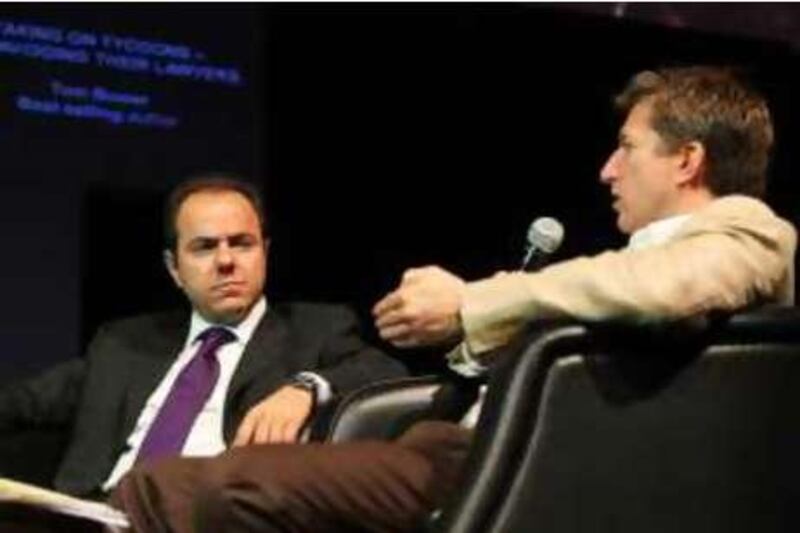The region's advertising industry must brace for slower growth over the next year, but is likely to bounce back more rapidly than other parts of the world, according to the president of the International Advertising Association (IAA). Speaking at the Media and Marketing Show in Dubai yesterday, Joseph Ghossoub, the president of the IAA and founder of The Holding Group, warned delgates against falling prey to potentially self-fullfilling reports of economic gloom.
"I am confident that together we will emerge at the end of 2009 stronger than we began it, on one condition: that we do not get locked into pessimism," he said. "Everything is continuing... Yes, there is a wait-and-see situation, but that's only natural." He pointed to the ability of the business community ih the Middle East to rebound following shocks in the 1970s and 1990s. "The markets over here in the Middle East and particularly in the Gulf have corrected in six months," he said, adding that the region remained a rare ray of sunshine in the global financial gloom.
But some shadows are creeping in. Mr Ghossoub said the advertising industry, which had been accustomed to 30 per cent and 40 per cent growth, would have to get used to 10 per cent growth for a time. And the real estate advertising picture would be particularly affected. "I think that real estate advertising will drop by 20 to 25 per cent," he said, but added that rents were still rising and "the demand is still there".
Simon Francis, the chief executive of Saatchi & Saatchi in Europe, the Middle East and Asia argued that this sombre economic backdrop made innovation in the industry more important than ever. He criticised the level of creativity being shown in the region. "The Middle East and North African creative businesses are not yet world-beating, especially among the rest of the Arab commercial sectors," he said. "They're not gaining on the rest of the world the way that other Arab businesses are, and they are not advancing as fast creatively as, say, Russia, where I was last week, or Turkey, where I also was last week, or the Far East countries, or indeed Africa."
He said advertising agencies must do better to create a sustainable environment for creative professionals. To that end, he announced that Saatchi & Saatchi was setting up an internal training academy in Dubai. "It's a war for creativity and a war for talent," he said. Elie Khouri, the managing director of Omnicom Media Group, a New York-based holding company, was scheduled to provide a more positive counterpoint to Mr Francis's criticism. But he ended up outlining a long list of regional shortcomings, tempered by the fact that the industry in the Middle East was only 30 years old and could not be expected to match the standards of the century-old institutions in the West.
Topping the list of problems, he said, was the fact that "advertising is not seen as a safe, serious and credible career path" in the Middle East, particularly for women, a situation that denies the industry a rich pool of talent. He also complained of a lack of communication between agencies and consumers, a lack of cultural stimulus to inspire creative professionals and widespread aversion to risk-taking.
"More than censorship, I see self-censorship as the major problem," he said, adding that it made agencies often willing to "settle for second-best or third-best rather than create any problems". In general, it was concern about the quality of the product rather than fears about shrinking budgets that dominated the first day of the conference. Piers Morgan, the former editor of London's Daily Mirror and a reality-show star, has been in Dubai for the past week making a documentary on the city. He urged the audience to be optimistic about Dubai's prospects of weathering the downturn.
"It has been an interesting week, and the one thing I've learned above all is that as this global credit crunch begins to bite I can't think of anywhere that has a more positive attitude and a more likely chance of coming through this without too much pain," he said. "Everywhere I've gone bursts with creativity, in a collective will to succeed, in a real sense of we can achieve this together." khagey@thenational.ae





